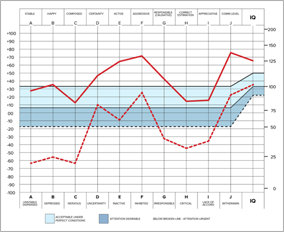WHY IS SCIENTOLOGY A CHURCH?
-
Online Courses
- How to Resolve Conflicts
- The Dynamics of Existence
- The Components of Understanding
- Solutions for a Dangerous Environment
- Assists for Illnesses and Injuries
- Integrity and Honesty
- Marriage
- The Emotional Tone Scale
- Answers to Drugs
- Children
- Tools for the Workplace
- Ethics and Conditions
- The Cause of Suppression
- Investigations
- Basics of Organising
- Fundamentals of Public Relations
- Targets and Goals
- The Technology of Study
- Communication
-
HOME
-
ABOUT US
-
L. RON HUBBARD
-
WHAT IS SCIENTOLOGY?
-
CHURCHES
-
DAILY CONNECT
-
SCIENTOLOGY TODAY
-
HOW WE HELP
-
FAQ
-
BOOKS & SERVICES
-
ONLINE COURSES
- How to Resolve Conflicts
- The Dynamics of Existence
- The Components of Understanding
- Solutions for a Dangerous Environment
- Assists for Illnesses and Injuries
- Integrity and Honesty
- Marriage
- The Emotional Tone Scale
- Answers to Drugs
- Children
- Tools for the Workplace
- Ethics and Conditions
- The Cause of Suppression
- Investigations
- Basics of Organising
- Fundamentals of Public Relations
- Targets and Goals
- The Technology of Study
- Communication
-
NEWSROOM
TAKE A FREE ONLINE PERSONALITY TEST
You are a unique individual with your own personality traits—some of these traits enable you to achieve great things in life, and others can seem to hold you back and ultimately stifle your true potential. Enter your information below to get started.

Oxford Capacity Analysis (OCA) Test
Please scroll down and read this document. Check the "I Agree" box and click the button to accept.

Oxford Capacity Analysis (OCA) Test
The OCA Personality Test and complimentary results consultation are absolutely free with no obligation—it’s simply a great opportunity to learn more about you.
Online Courses
Related Sites
Language
ENGLISH (US/International)
ENGLISH (Australia)
ENGLISH (Canada)
ENGLISH (United Kingdom)
ENGLISH (Ireland)
ENGLISH (Nepal)
ENGLISH (Philippines)
ENGLISH (Rwanda)
ENGLISH (South Africa)
DANSK
FRANÇAIS
עברית
日本語
РУССКИЙ
繁體中文
NEDERLANDS
DEUTSCH
MAGYAR
NORSK
SVENSKA
ESPAÑOL (LATINO)
ESPAÑOL (CASTELLANO)
ΕΛΛΗΝΙΚA
ITALIANO
PORTUGUÊS
L. Ron Hubbard
Dianetics
Scientology Network
Scientology Religion
What is Scientology?
Scientology Newsroom
David Miscavige
Religious Technology Center
Start an Online Course
Scientology Volunteer Ministers
International Association of Scientologists
Freedom Magazine
STAND
The Way to Happiness
Criminon
Narconon
Applied Scholastics
In Support of a Drug-Free World
United for Human Rights
Youth for Human Rights
Citizens Commission on Human Rights








